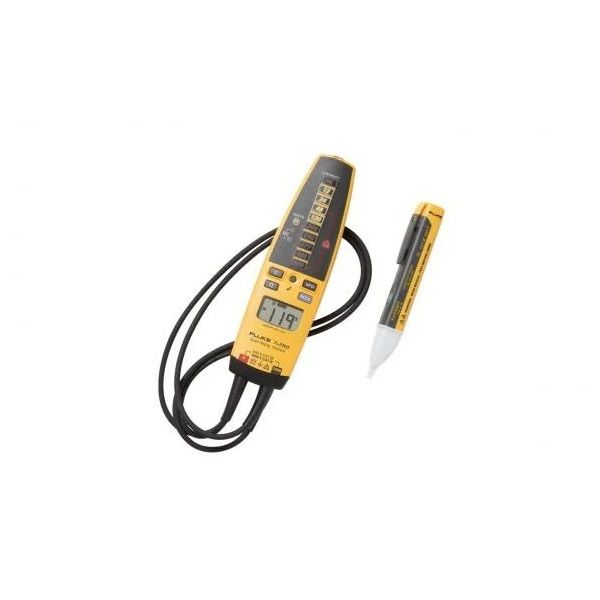Electrical work requires precision, skill, and the right tools. Among these tools, electrical tester play a critical role in ensuring both efficiency and safety. They help electricians diagnose problems, verify circuit conditions, and test equipment performance. This article will discuss essential electrical tester that every electrician should have in their toolkit, focusing on their applications, benefits, and usage tips.
Types of Electrical Tester
Voltage Testers
Voltage testers are among the most basic yet essential tools for electricians. These devices are used to check the presence of voltage in electrical circuits, ensuring that they are safe to work on. They come in various forms, including non-contact voltage testers (NCVTs) and contact voltage testers, each serving different purposes and offering unique benefits.
- Non-Contact Voltage Testers (NCVTs)
NCVTs allow electricians to detect voltage without directly touching wires. This feature provides a visual and audible indication when voltage is present. It is crucial for ensuring safety, as it helps avoid accidental contact with live wires that can result in electric shocks. A typical non-contact tester might emit a beep or light up when it approaches a live wire, making it easy to identify hazardous conditions quickly. This means electricians can confirm whether or not areas are live before starting repairs. - Contact Voltage Testers
These testers require direct contact to determine voltage presence. They typically provide numerical readings, giving more detailed information about voltage levels. Ideal for testing outlets, circuits, and appliances, contact voltage testers are versatile tools in any electrician’s kit. They allow for precise measurements and troubleshooting of specific electrical problems, enabling electricians to correct issues effectively. Learning how to properly use both types of testers allows professionals to operate safely while also diagnosing their work accurately.
Multimeters
Multimeters are multifunctional devices that measure voltage, current, and resistance. They can also test continuity and perform diode tests. This versatility makes them indispensable for electricians in a wide range of scenarios.
- Digital Multimeters (DMMs)
Digital multimeters offer clear, easy-to-read displays, which makes them convenient and user-friendly. They provide accurate measurements for both DC and AC voltage, making them suitable for various electrical applications, from small projects to complex installations. Many advanced models include features such as data hold and backlighting for convenient use in low-light conditions. Additionally, digital multimeters often have multiple functions—allowing electricians to switch between measurement types seamlessly. This multifunctionality consolidates several tools into one, making it an essential component of any toolkit. - Analog Multimeters
While less common today, analog multimeters are still valued by some electricians for their simple design and real-time feedback. They use a needle to indicate readings on a scale, allowing for quick feedback on electrical measurements. Analog meters are less prone to damage from electrical surges, making them useful for specific testing situations where high voltages might be encountered. Some electricians prefer analog devices for their ability to show trends in measurements, which can be particularly important in diagnosing issues over time. Understanding when to use analog versus digital can enhance an electrician’s flexibility in the field.
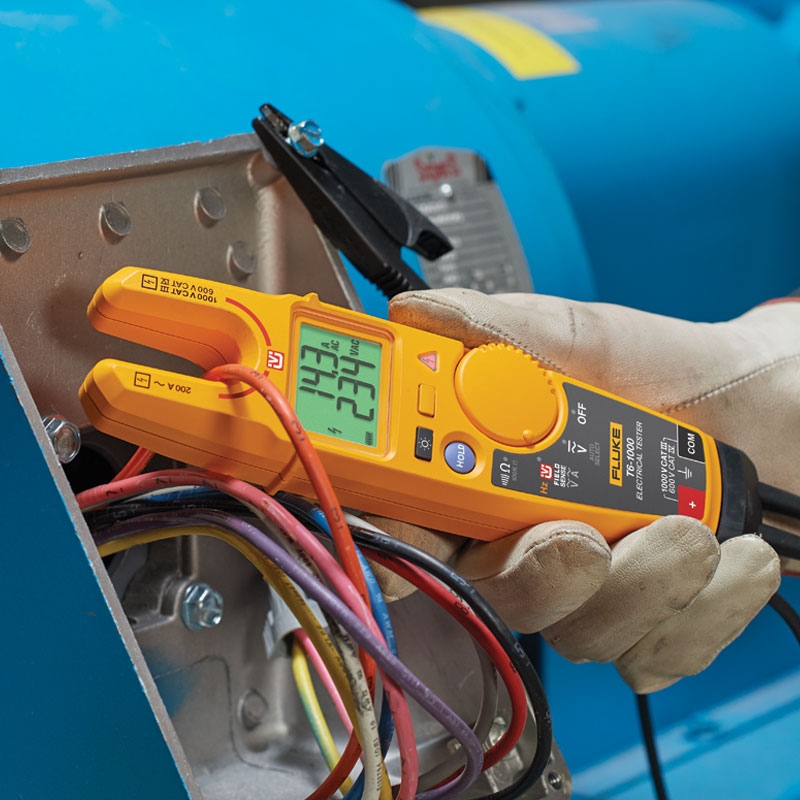
Specialty Testers
Circuit Testers
Circuit testers are specifically designed to assess the integrity and continuity of electrical circuits. They are essential tools for diagnosing wiring issues and ensuring that circuits function as intended, which is critical for both safety and performance.
- Light Bulb Circuit Testers
These testers come with a light bulb that lights up when the circuit is live. This simple method allows electricians to check whether power is present in a circuit. Light bulb circuit testers are a quick way to determine if an outlet or fixture is operational. Often used to troubleshoot issues in residential wiring, such as identifying dead outlets or faulty light fixtures, these testers are both simple and effective. Their straightforward design provides electricians with immediate feedback, allowing them to address issues promptly. - GFCI and AFCI Testers
Ground Fault Circuit Interrupter (GFCI) and Arc Fault Circuit Interrupter (AFCI) testers are specialized devices that assess the functionality of these critical safety devices. GFCI testers check whether the GFCI outlet will trip under fault conditions, which is essential for preventing shock hazards in wet areas. AFCI testers can help determine if an AFCI breaker is working correctly to prevent arcs that may cause fires in the home. Regular testing of these safety devices ensures that they function correctly and provides peace of mind to homeowners, making them invaluable tools for electricians focusing on safety.
Continuity Testers
Continuity testers are simple devices that indicate whether a circuit is complete, which is vital for ensuring safety and performance in electrical systems. They are often used to check fuses, light bulbs, and various electrical connections.
- Basic Continuity Testers
These testers usually consist of a light bulb or LED that lights up when current flows through a connected circuit. They are easy to use and effective for diagnosing issues like broken wires or faulty connections. Basic continuity testers are especially useful for tasks like testing circuit wires before installation or troubleshooting broken connections in fixtures and outlets. Their simplicity allows electricians to quickly verify whether connections are intact, streamlining repair processes. - Advanced Continuity Testers
More advanced continuity testers offer additional features, such as tone indicators and the ability to test higher voltage circuits. Some models even have the capability to measure resistance, providing electricians with more detailed diagnostic information. These testers can deliver precise feedback on circuit health, making them invaluable for any electrical troubleshooting or diagnostic tasks. By using different continuity testers strategically, electricians can diagnose and address electrical issues more efficiently.
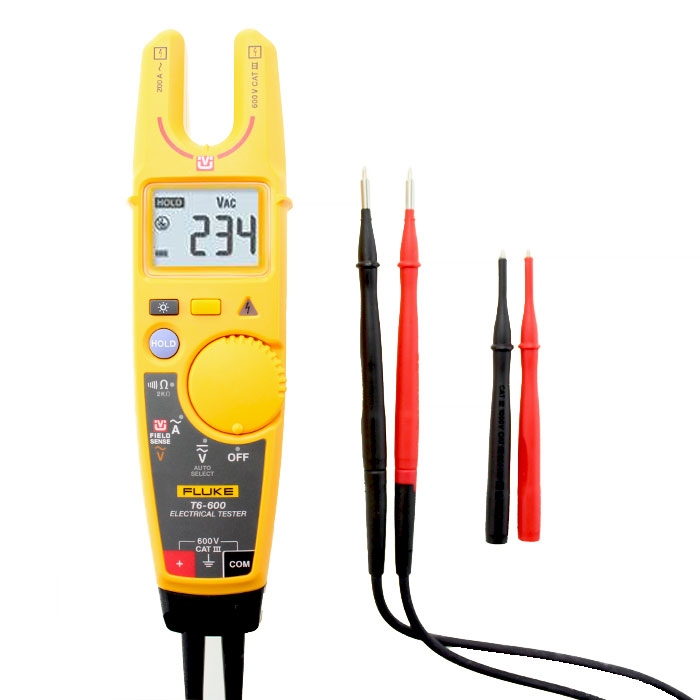
Safety and Performance
Importance of Safety Ratings
When selecting electrical tester, safety ratings are crucial. Look for testers that meet or exceed regulatory standards. This ensures the devices are safe for use in various electrical environments while also maintaining compliance with industry regulations. Many testers will have ratings like CAT II, CAT III, or CAT IV, indicating their suitability for different voltage levels and circuit types.
- Understanding Categories
CAT II testers are suitable for use on equipment plugged into standard electrical outlets; for example, testing domestic appliances. CAT III testers are designed for testing electrical installations, such as wiring in commercial buildings. Meanwhile, CAT IV testers are meant for high-voltage environments, such as utility installations and outdoor power distribution. Always choose a tester rated for the job to ensure safety and reliability in your work environment. This careful selection not only safeguards electricians but also provides assurance to clients regarding their safety.
Quality and Reliability
Investing in high-quality testers is essential for consistent performance. Trusted brands often provide better accuracy and durability, proving valuable over time. Cheaper, low-quality testers may give misleading readings, resulting in potential hazards or errors in electrical work.
- Recognizing Trusted Brands
Brands known for their reliability, such as Fluke, Klein Tools, and Extech, are often favored by electricians. These manufacturers invest in rigorous testing and quality control to produce accurate and durable products. Using reputable tools will lead to greater accuracy and enhance your professional reputation. Electricians can build trust with clients by consistently delivering safe and effective services, largely supported by the quality of their tools.
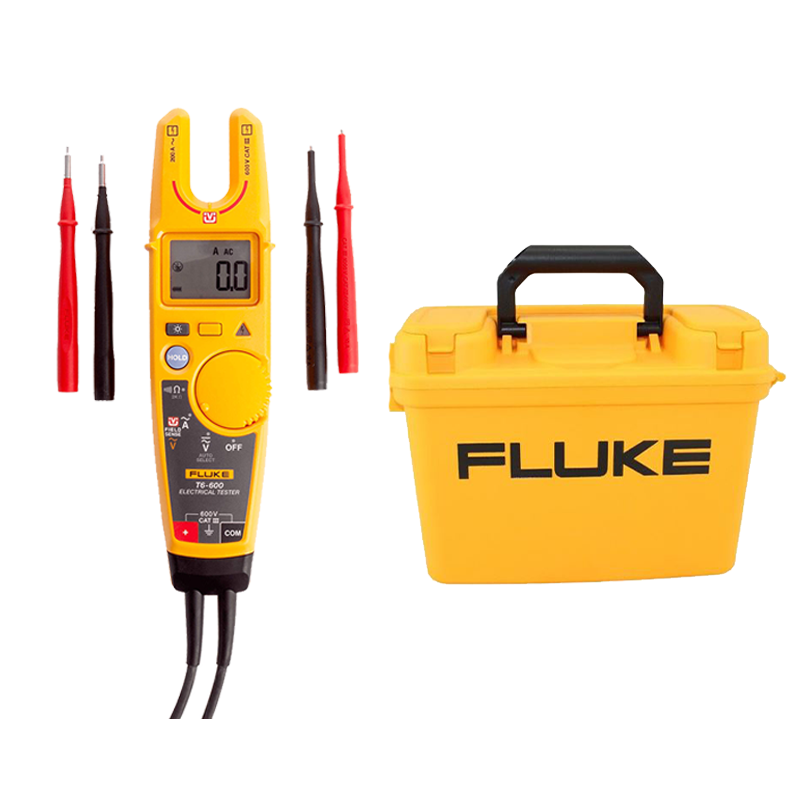
Maintaining Your Electrical Tester
Regular Calibration
To ensure optimal performance, it’s essential to calibrate electrical tester regularly. Proper calibration guarantees that readings are accurate, particularly for sensitive tools like multimeters. Follow the manufacturer’s guidelines for calibration schedules and procedures, as neglecting this aspect could lead to unreliable data and costly mistakes during jobs.
- Understanding Calibration Needs
Some testers may require professional calibration, while others can be easily calibrated by the user. Basic multimeters often include simple calibration procedures that electricians can manage themselves. Regular checks can help maintain consistent performance and keep your tools in top shape. Proper calibration not only extends the lifespan of your testers but also reinforces accuracy and professionalism in your work.
Cleaning and Care
Keeping testers clean and well-maintained extends their lifespan and ensures accuracy. Regularly inspect your devices for signs of wear or damage, which can significantly affect performance.
- Cleaning Tips
Use a soft, dry cloth to clean the casing and connectors. Avoid using moisture or harsh chemicals, as these can damage the components and impact functionality. Storing testers in a protective case or pouch prevents accidental mishaps during transport. Additionally, regular inspections can help identify any potential issues before they become major problems, allowing for timely repairs or replacements.
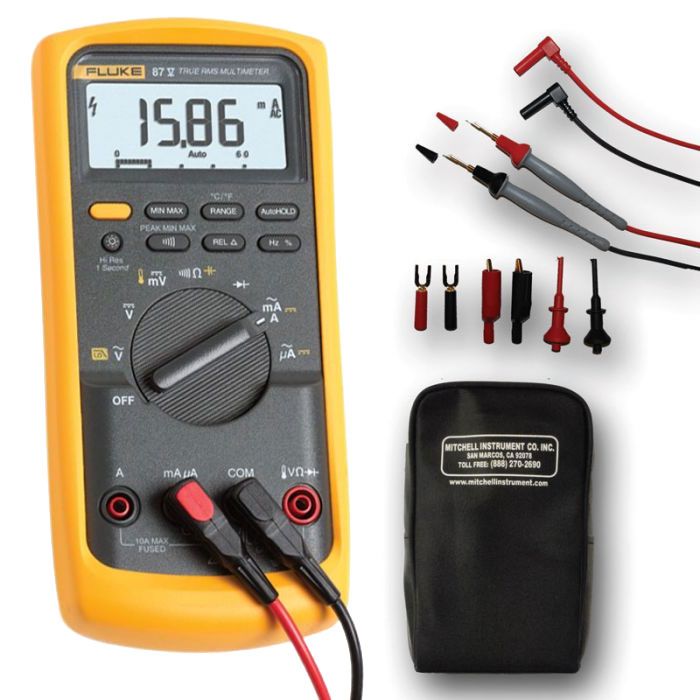
Expanding Your Toolkit
Additional Testing Devices
Consider expanding your toolkit with additional testing devices that may be useful for specific scenarios. This approach ensures you are prepared for a variety of challenges, enhancing your efficiency and effectiveness as an electrician. Some valuable tools include thermal imaging cameras, clamp meters, and power quality analyzers.
- Thermal Imaging Cameras
These devices allow electricians to visualize temperature variations in electrical systems. They can help identify hot spots in wiring, which may indicate potential failures or risks. Thermal imaging is especially useful in facilities management, where monitoring electrical systems’ operational integrity is paramount. This preventative approach can save time, enhance safety, and extend the lifespan of electrical systems. - Clamp Meters
Clamp meters enable electricians to measure current without disconnecting circuits. They are particularly useful for monitoring large systems and assessing electrical load during repairs or installations. Clamp meters can provide instant readouts, allowing electricians to troubleshoot circuits efficiently without interrupting power. This capability is essential when working in commercial settings where downtime can result in significant losses.
Investing in a Quality Toolkit
Choosing a complete toolkit that includes a variety of testers will enhance your efficiency and versatility as an electrician. A well-equipped toolkit can address a wide range of electrical tasks, from simple repairs to complex installations.
- Selecting Essential Tools
While the specific tools you need may vary based on your projects, a toolkit that includes basic voltage testers, multimeters, and specialty testers ensures you are prepared for any situation. Consider tools that are best suited for your area of expertise, whether residential, commercial, or industrial. Investing in quality tools pays off in the long run, providing reliability, accuracy, and improved safety. This level of preparedness not only enhances job performance but also boosts your confidence and credibility in the field.
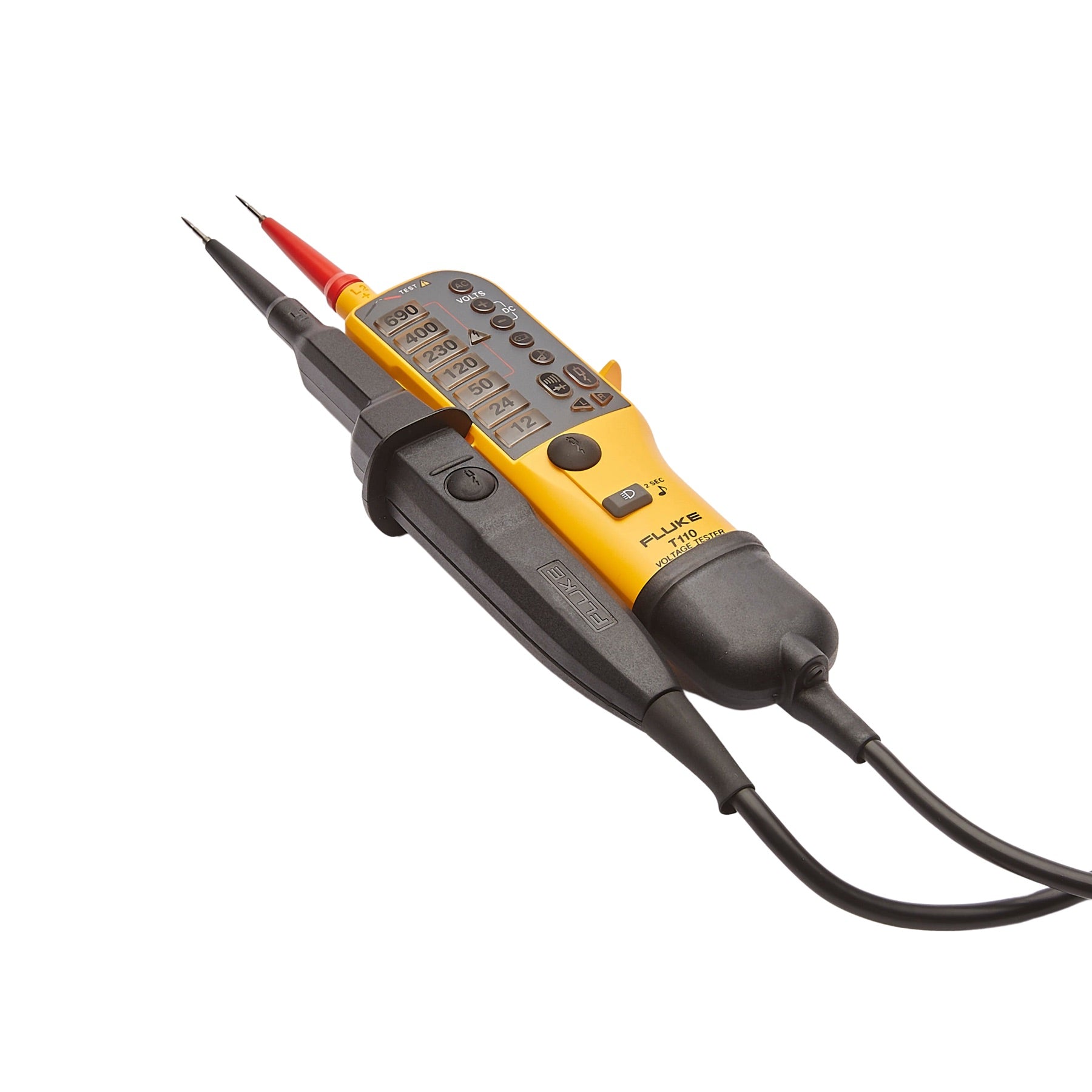
Conclusion
Electrical testers are essential tools for every electrician, aiding in safety and efficiency. Voltage testers, multimeters, circuit testers, and continuity testers form the backbone of any electrician’s toolkit. Each type of tester serves a specific purpose, helping to maintain and diagnose electrical systems effectively.
Selecting the right testers and understanding their applications enhance safety and ensure quality work. Regular maintenance and calibration, alongside investing in high-quality tools, will ensure that your electrical tester perform optimally for years to come. Ultimately, a well-equipped toolkit leads to more efficient problem-solving and quality craftsmanship, contributing to your reputation as a reliable electrician in an ever-evolving field. By prioritizing safety and efficiency, electricians can confidently navigate their work environments, delivering exceptional service every time.
